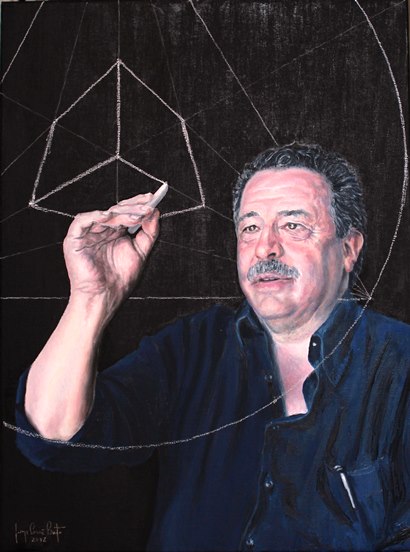 |
Manuel Couceiro da Costa, Chairman of the EAAE/ARCC 2016 International Architectural Research Conference.
Your EAAE/ARCC 2016 International Architectural Research Conference will kick off on June 15. The theme for the congress is “Societal Challenges”. Why?
The full title of the EAAE/ARCC International Conference – Lisbon 2016, “Architectural Research addressing Societal Challenges”, was decided in late 2014. Our main concern was the escalating of interdependency of nations driving global geopolitics to shift ever more quickly. Today, societies seem unable to control changes that fall upon their cities. Believing that these challenges are global but that solutions need to be implemented locally and further believing that architectural research and intervention can contribute to the future of our changing societies, this conference aims to point out innovative experiments and new thinking on how architecture can address these challenges.
So, is your conference also of social and cultural resonance?
That is one of the aims of the conference. At the moment, we have confirmed conference registrations from all five continents; thus, we find that the conference may be of global social and cultural resonance, under a matrix of Portuguese influence which carries a tradition of respect for all cultures, societies and religions.
Is the current refugee crisis also affecting your work?
The theme of the conference was decided before the occurrence of the current refugee crisis, but that occurrence confirms the relevance of societal challenges as a topic of this era.
For your conference you have chosen Lisbon. Why?
The EAAE/ARCC International Conferences have been hosted, every other year in either North America or Europe. These organizations decide, in each conference, which of their member universities and/or research centre members will be the host of the next one. For the 2016 conference, the EAAE Council, upon a candidacy of some of the European institutions, decided on the Faculty of Architecture of the University of Lisbon and, so, for the city of Lisbon. The city has inherent strong points, considering a strong architectural community and heritage; furthermore, historically, it has always been a place where East and West could meet.
For those delegates who cannot join you in Portugal, can they participate remotely?
Remote participation is not considered. For all those that are interested, we stress that the conference will be filmed and subsequently disseminated and that the proceedings will be published by Taylor & Francis and will be available worldwide.
What are the main challenges for the European Association for Architectural Education these days?
The purpose of the EAAE is to advance the quality of architectural education and architectural research, providing a forum for generating and exchanging information. The mission statement of the association is therefore to build a network of European Schools of Architecture fostering the discussion, the exchanges and a common policy in Europe to advance the quality of architectural education.
Those days, agreeing with the concerns of the conference about societal challenges and on the other hand, considering its recent past, EAAE is under a process of internal reorganization, stressing a new administrative settlement and the creation of two new permanent structural bodies, namely the Education Academy and the Research Academy.
The EAAE/ARCC International Conference, held under the aegis of the EAAE (European Association for Architectural Education) and of the ARCC (Architectural Research Centers Consortium), is a conference organized every other year, in collaboration with one of the member schools / universities of those associations, alternately in North America and in Europe. The conference discussions focus on research experiences in the field of architecture and architectural education, providing a critical forum for the dissemination and engagement of current ideas from around the world. The issues are progressively refined and detailed, always open to general issues, and the international dimension is expanding with a growing presence of researchers from other continents, which has been occurring since Copenhagen / 2008, with scholars and teachers from Australia, Africa or the Far East.
http://eaae-arcc2016.fa.ulisboa.pt/index.php